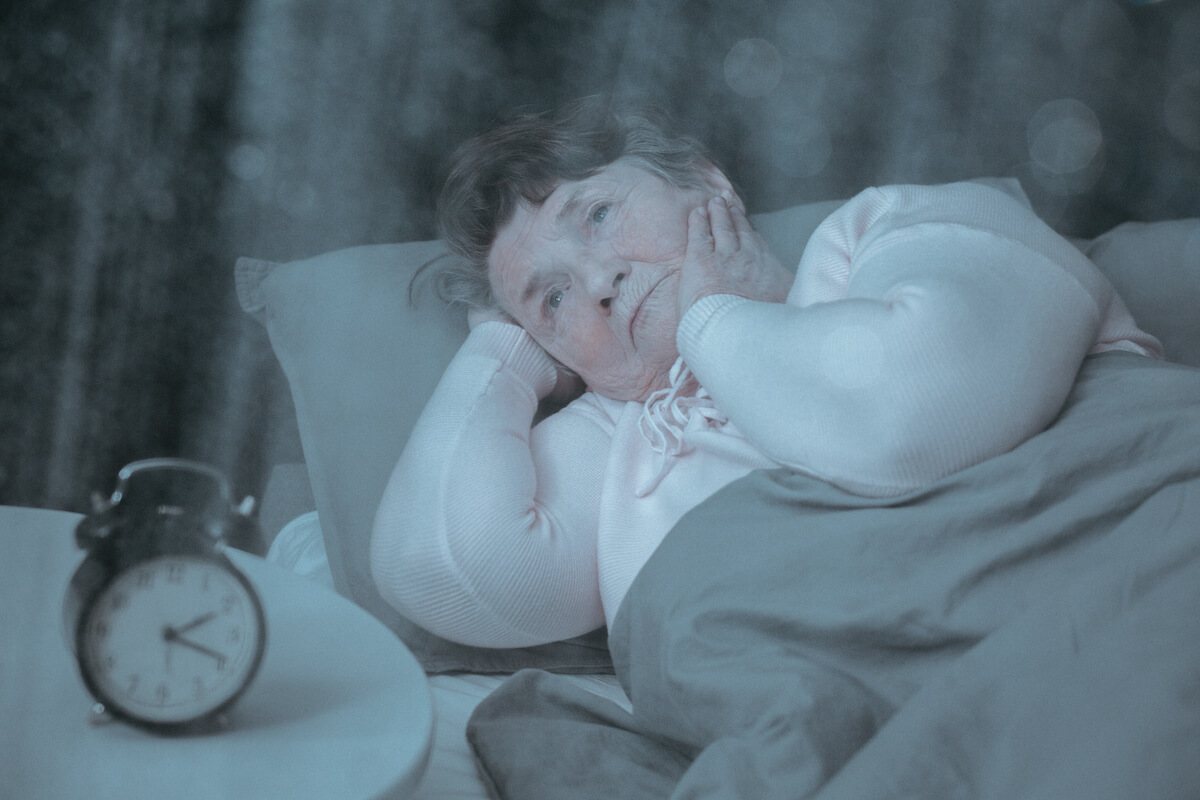Quality sleep is an important aspect of a healthy lifestyle. It affects cognitive function, memory consolidation, the ability to perform daily tasks, and independence. However, dementia can interfere with how much and how well a person sleeps each night.
As a Meadows Place memory care community, we understand the importance of quality sleep. Our team at The Hampton at Meadows Place is sharing the connection between dementia and sleep, reasons your family member may not be sleeping well, and tips to improve their sleep quality, answering the question, “How does dementia affect sleep?”
The Connection Between Dementia and Sleep
 Disruption of the Sleep-Wake Cycle
Disruption of the Sleep-Wake Cycle
The sleep-wake cycle, regulated by our circadian rhythm, becomes severely disrupted in individuals with dementia. This disruption can lead to fragmented sleep, frequent awakenings, and difficulty staying asleep. The brain’s internal clock, which signals when to sleep and wake, loses its synchronization, making it challenging for those with dementia to maintain regular sleep patterns.
The Role of Sundowning in Sleep Disturbances
Sundowning commonly affects individuals with dementia and refers to increased confusion, agitation, and restlessness occurring during the late afternoon and evening. This state of confusion can significantly impact a person’s ability to fall asleep and stay asleep, leading to more extended periods of wakefulness and nighttime wandering.
Increased Risk of Sleep Disorders
Individuals with dementia are at a higher risk of developing sleep disorders such as sleep apnea and restless legs syndrome. These conditions can further complicate their already disrupted sleep patterns, making it even more difficult for them to achieve the restorative sleep they need.
Why a Person with Dementia Might Not Sleep Well
Disorientation and Confusion
Disorientation and confusion are hallmarks of dementia, often exacerbated during the night. This confusion can make the individual feel lost and anxious, preventing them from settling down to sleep. The unfamiliarity of their surroundings and the inability to recognize time and place can lead to sleepless nights.
Medication Side Effects
Many individuals with dementia are on medications that can have side effects, including sleep disturbances. Some medications may cause drowsiness during the day, leading to nighttime wakefulness, while others might directly impact the quality of sleep.
Environmental Factors
Factors such as noise, light, temperature, and the comfort of the sleeping space can all impact an individual’s ability to sleep well. For those facing dementia, any change in their setting can be particularly disorienting, making it harder for them to sleep.
4 Tips to Help Someone with Dementia Get Better Sleep
Establish a Routine
Creating a consistent daily routine can help regulate the sleep-wake cycle. Encourage regular wake-up and wind-down times, and include calming tasks before bed, such as reading or listening to soothing music. A predictable routine can provide comfort and reduce anxiety, helping the individual settle down for the night.
Create a Soothing Setup
Ensuring the room is quiet, dark, and a comfortable temperature can help individuals fall asleep faster and enhance sleep quality. Consider using blackout curtains to block out light and white noise machines to minimize disruptive sounds. Comfortable bedding and pillows can also significantly improve sleep quality.
Encourage Physical Activity
Engaging in regular physical exercise during the day can promote better sleep at night. Practices such as walking, gardening, or gentle exercises can help tire the body and regulate the sleep-wake cycle. However, avoid vigorous tasks close to bedtime, as they can be stimulating and make it harder to fall asleep.
Monitor Diet and Hydration
Diet and hydration play a crucial role in sleep quality. Avoid caffeine and heavy meals close to bedtime, as they can disrupt sleep. Ensure the individual stays hydrated throughout the day, but limit fluids in the evening to reduce the number of nighttime awakenings.
–
Sleep is an essential part of a healthy lifestyle. Even though dementia can affect sleep quality, there are ways you can help your family member get the rest they need. To learn more about how our Meadows Place memory care community enhances the lives of individuals with dementia, we invite you to reach out to a member of The Hampton at Meadows Place team.



